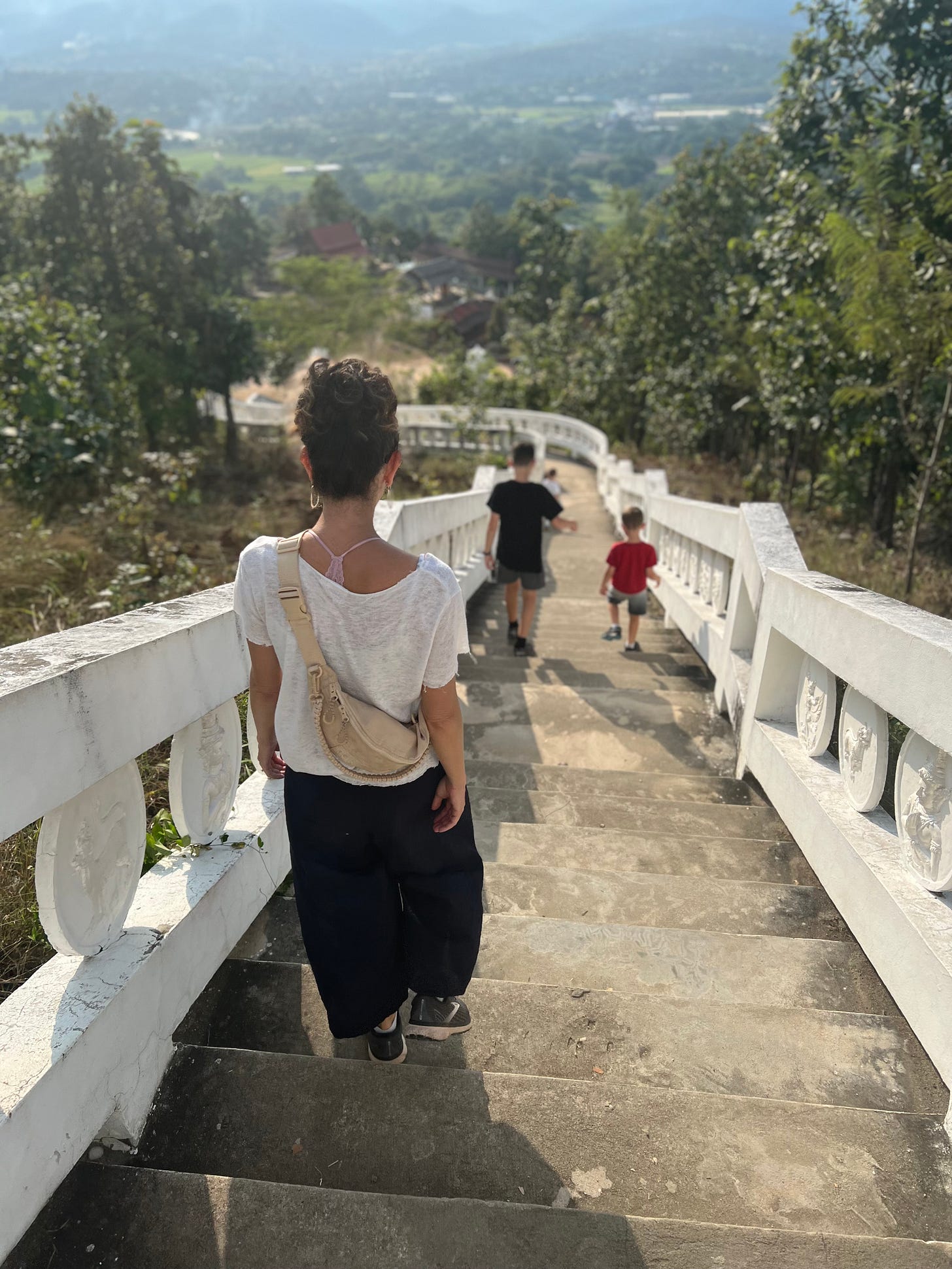Intuition: A Rediscovery
My story of this beginning
I have written a lot about our family’s travel adventures over the last year. About the ups and downs, imperceptibly drawing lines back to my own journey, but perhaps purposely not owning up to where this process has truly taken me.
Intuition has played a strong role in my life for as long as I can remember. It has appeared as premonitions, an over-empathic nervous system feeling ailments of others, incisive moments of clarity and decision-making, spontaneous visions, a reveal of someone’s thoughts, looking at my phone moments before a loved one calls.
It was never clear how to play with this sensing, and as I grew older, that intuition would ebb and flow. It would leave me for long periods of time, drowned out by elements in my personality that seemed to counteract this drive.
I had overdeveloped a part of my personality that I see now in my imagination as a ball of yarn, tangled, unclear where it began or where it ended. It was a ball of analysis, intellectualism, control, management, polish, and dissection.
There was nothing wrong per se with this element at its core; it was simply overdeveloped, like a muscle that forgot that the body indeed needed to be played in symphony. In the end, that overdeveloped part of me led to a certain type of injury.
The muscle became so overdeveloped that it drowned me out, rendered me a shell, emotional-less, and impermeable.
My first three months of our family’s adventures led me back to the mystery of intuition, sensing before language erects its creative boundaries, calling themselves into the world through naming and punctuation. I also began diving into literature on intuition – both non-fiction and fiction – exploring the vast spiritual, scientific, and imaginative places one can adventure into beyond the containers and categories in which we bind ourselves.
After months of these seeds revealing themselves, I have decided to begin a PhD program that explicitly allows me to simultaneously occupy the intellectual and sensing part of me, hopefully woven into one another.
I believe that we conceptualize intuition along a spectrum in the West. On one end of the spectrum is mainstream or socially acceptable intuition. This is often rooted in business (e.g., an expert decision-maker who uses their ‘gut’), psychology, or even military contexts (e.g., sensemaking, pattern recognition). Malcolm Gladwell’s Blink popularized this most saliently in the mainstream psyche, with much of this examination masculine in its orientation. On the other end of the spectrum are more fringe or less socially acceptable forms of intuition. Examples include religious and/or mystical experiences, or paranormal experiences such as clairvoyance or telepathy. Intuition on this end of the spectrum is often cast with a more feminine orientation.
I hope to study the full spectrum of intuition, understanding the edges and boundaries, where and why experiences become fringe, and ultimately broadening mainstream appreciation of the possibilities of intuition and human potential. I hope to contribute to the evolution of our understanding of the possibility of intuitive states.


